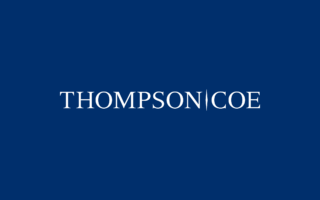Texas Supreme Court Disallows Discovery of Unrelated Claim Files
By J. Richard Harmon • Oct 31, 2014
In re Nat'l Lloyds Ins. Co., No. 13-0761 (Tex. October 31, 2014)
The Texas Supreme Court recently granted mandamus relief sought by an insurance carrier in a discovery dispute and determined the trial court abused its discretion in ordering the carrier to produce independent adjusters' claim files not related to the plaintiff's claim. The court found that despite the trial court's discovery order being limited in time and location, the homeowner's requested discovery was irrelevant and an impermissible fishing expedition. The court reasoned that the information sought was not reasonably calculated to lead to the discovery of admissible evidence.
In the underlying case, the homeowner plaintiff sued National Lloyds Insurance Company for breach of contract and bad faith, alleging that National Lloyds undervalued two insurance claims arising from storm damage. Plaintiff sought production of claim files for other properties in the same city adjusted by either of the two independent adjusting companies that handled plaintiff's claims. National Lloyds objected to these discovery requests, but the trial court ordered production of the files for claims handled by the independent adjusting companies, limited to claims related to properties located in the same city and arising from the same storms. The Dallas Court of Appeals denied National Lloyds' request for mandamus relief, so National Lloyds turned to the Texas Supreme Court.
Plaintiff argued she needed the requested information to evaluate and prove that her claim was adjusted in bad faith. The Texas Supreme Court distilled plaintiff's argument as follows: "Essentially, then, [plaintiff] has proposed to compare National Lloyds' evaluation of the damage to her home with National Lloyds' evaluation of the damage to other homes to support her contention that her claims were undervalued." The court found the argument flawed, and reasoned that the carrier's overpayment, underpayment, or proper payment of unrelated third-party claims was not probative of the carrier's conduct regarding plaintiff's underlying claim. The court further explained that its reasoning was especially sound in light of the many claim-specific variables, including the date of filing, an insured property's condition, and the nature and extent of property damage. The Texas Supreme Court found that plaintiff's attempt to scour claim files to find similar insured homeowners whose claims were evaluated differently is "at best an 'impermissible fishing expedition." Without further evidence from plaintiff that the information sought was reasonably calculated to lead to the discovery of admissible evidence, the Texas Supreme Court ruled that the trial court's order compelling discovery of the independent adjusters' claim files was overbroad and directed the trial court to vacate its order.
The parties' briefing contemplated whether plaintiff's requests were unduly burdensome, but the court's analysis did not reach this issue, as the court was able to find that plaintiff's requests were overbroad and an impermissible fishing expedition. In a footnote, the court cautioned it was not ruling out relevance of third-party insurance claim files in all coverage litigation. Still, the Texas Supreme Court's reasoning and grant of relief may indicate that requests for information in, and the production of, other claim files handled by the same adjusters are objectionable as overly broad.








